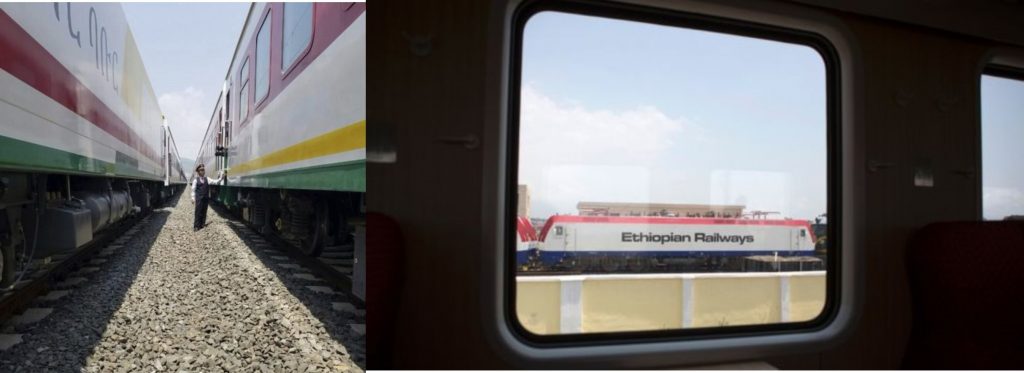Ethiopia and Djibouti officially get the bragging rights to be the pioneers of a fully electrified cross-border railroad across Africa.
Bragging rights aside! Ethiopia and Djibouti have opened up an electric railroad running from Addis to the Red Sea port of Djibouti. A distance stretching a little over 466 miles (750 kms) and at a cost to the tune of about $3.4 billion. This electric railroad runs parallel to an old one laid down over 100 years ago.
The track will dramatically reduce travel time and cost of cargo imports bound to Ethiopia through the Red Sea port of Djibouti. To the landlocked Ethiopia, the port of Djibouti is critical to its economy’s survival and growth; given about 90% of Ethiopia’s imports pass through the port.
“In Ethiopia currently if you want to bring your container from Hong Kong to Djibouti, it will take you maybe two, three weeks. But it will take you more than that to take it from Djibouti to Addis Ababa. It will now take use one day or more,” said Getachew Betru, Chief Executive of Ethiopia Railways.
The fact that the new electric railroad will boost Ethiopia’s economy is evident to every stakeholder. During the opening ceremony yesterday, by the Ethiopian Prime Minister Hailemariam Desalegn, he said, “It will provide huge benefits to the industrial parks and modern farms that will be built in the future.”
Financing of the Railroad
The Ethiopia – Djibouti railway was 70% financed by the Chinese Exim Bank. The construction work was done by the China Railway Group and China Civil Engineering Construction. Now that it is fully complete and up and running, the railroad will be under Chinese control over the next five years.
China will provide the rail controllers, technicians, and even the station masters. During that time, the locals will be employed in other positions and as apprentices to replace the Chinese when they leave in five years’ time.
This rail is part of a grand plan to build a railroad network spanning over 3,107 miles (5,000Kms) connecting Ethiopia, Sudan, South Sudan, and Kenya. Hopefully by the year 2020. This plan also hopes to extend the railroad all the way to the Atlantic Ocean from the coast of Djibouti.



